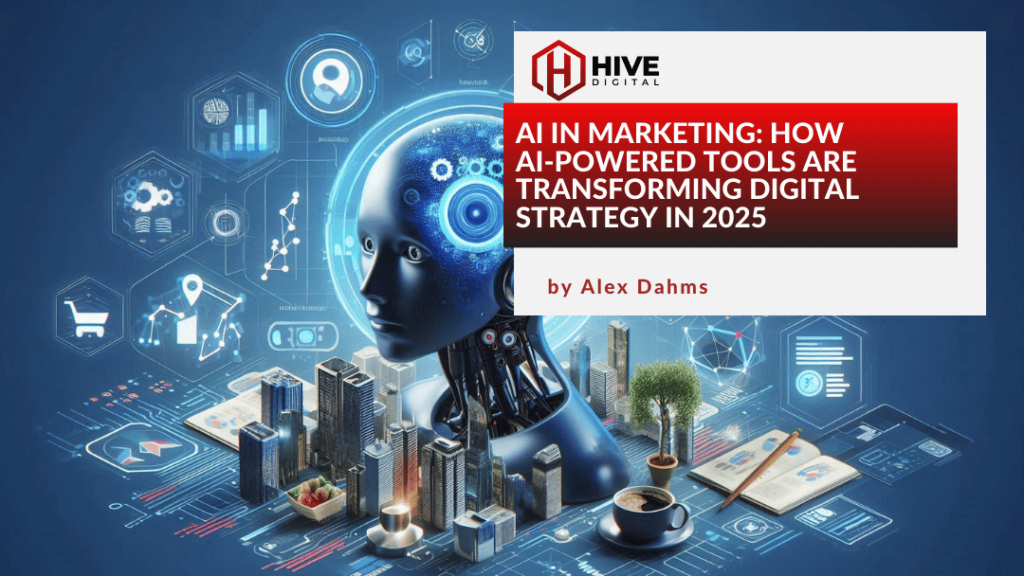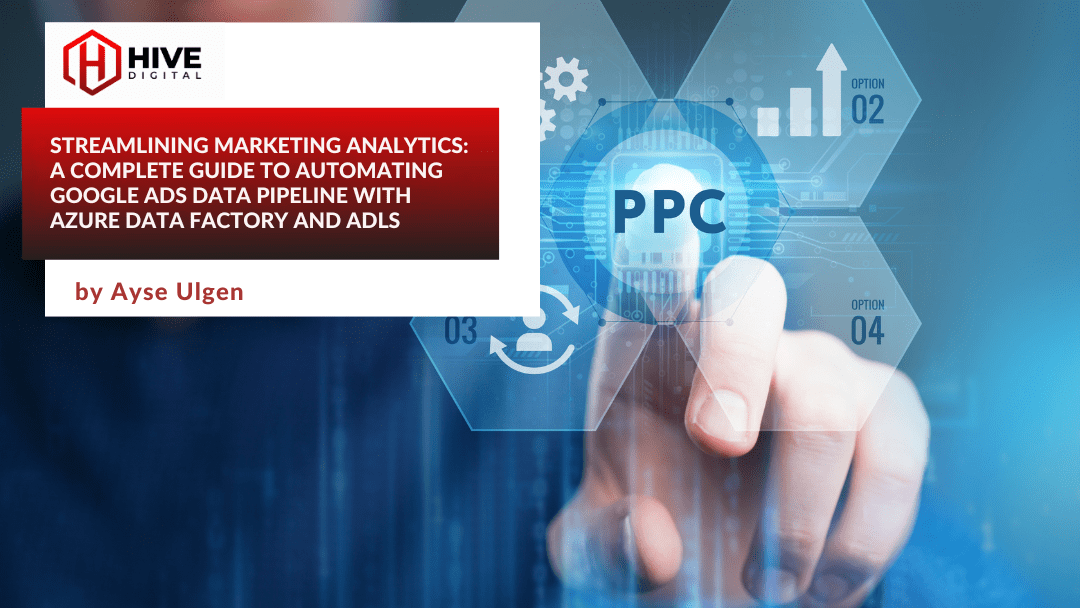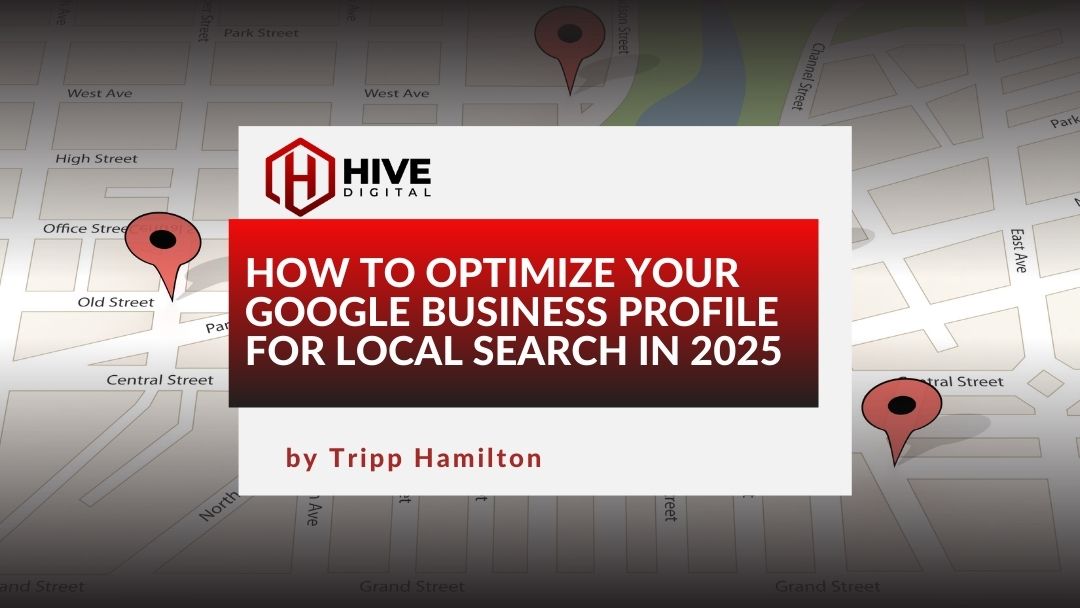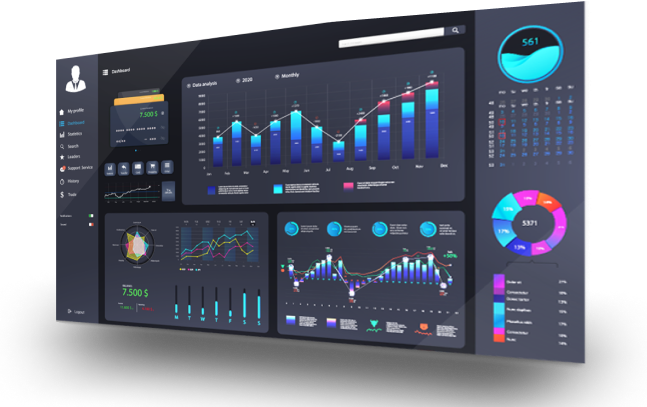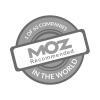We’ve come a long way from iRobot and WarGames — AI is now a real and driving force behind most effective digital marketing strategies today. Businesses integrate AI into their marketing efforts to see faster decision-making, smarter customer segmentation, and more effective marketing automation. Also, with the rise of AI-powered marketing analytics, these companies can leverage predictive analytics in marketing to refine their approach and stay ahead of competitors.
There are a ton of AI marketing tools, and brands can automate tasks, personalize customer experiences, and gain deeper insights from data if they choose to utilize them. This shift in digital marketing helps businesses create smarter, data-driven campaigns that yield stronger results.
How AI Reshapes Digital Marketing
To put it lightly, AI is revolutionizing every aspect of digital marketing, from content creation to advertising optimization. Brands that embrace AI gain an edge by improving personalization, automating workflows, and efficient performance tracking. Overall the tech enables businesses to anticipate customer needs, which essentially ensures the right message reaches the right person at the right time.
Key areas where AI is making a major impact:
- AI-powered marketing analytics extract insights from large datasets, allowing brands to refine their targeting and messaging.
- AI-driven customer segmentation sorts audiences into highly specific groups based on behavior, demographics, and real-time interactions.
- Predictive analytics in marketing forecast future consumer actions, enabling brands to proactively adjust their strategies.
- Marketing automation with AI streamlines processes like email marketing, lead nurturing, and social media management.
AI is shifting marketing from a reactive to a proactive discipline, giving businesses the ability to optimize campaigns before they launch.
The Rise of AI-Powered Marketing Analytics
Traditional marketing analytics requires manual data interpretation, which is often time-consuming and prone to human error. However, AI-powered marketing analytics can eliminate this bottleneck by processing large volumes of data in real time, identifying trends, and offering actionable recommendations.
For example, AI tools can analyze consumer behavior across platforms, revealing insights about what content drives engagement, which ad creatives convert best, and how customers move through the sales funnel. AI in advertising can also help optimize ad spend by dynamically adjusting campaigns based on performance metrics.
Businesses that implement AI-based analytics see improvements in:
- Conversion rate optimization: AI tools can detect patterns in customer interactions and suggest changes that increase conversions.
- A/B testing efficiency: Instead of running manual experiments, AI autonomously tests multiple variations and prioritizes the best-performing content.
- Campaign forecasting: Brands can anticipate which strategies will deliver the highest ROI based on past performance and AI-driven predictions.
With AI marketing tools, brands move beyond historical analysis and into real-time, forward-looking strategies.
AI-Driven Customer Segmentation for Smarter Targeting
Personalization has become a standard expectation among consumers, and if you avoid efforts to help your users feel “seen” they will pick up on this and disengage with your brand. AI-driven customer segmentation ensures that marketing messages resonate with the right audience, and AI can quickly sort customers based on behaviors, interests, and purchasing habits rather than relying on broad demographics.
For example, an AI-powered system might segment an online clothing retailer’s customers into groups such as:
- Frequent buyers who respond well to loyalty rewards and VIP offers.
- Seasonal shoppers who engage with promotions during specific times of the year.
- First-time visitors who need educational content before making a purchase.
- Cart abandoners who require strategic follow-ups and personalized incentives.
By tailoring messages to specific segments, brands enhance customer engagement and improve conversion rates.
How AI Is Revolutionizing Content Creation and Personalization
AI has transformed content marketing, allowing brands to scale personalized messaging without sacrificing quality. Businesses can now generate blog posts, ad copy, and even video scripts using AI-powered tools that analyze past engagement data to determine what resonates most with an audience. Instead of manually brainstorming ideas, marketers can leverage AI to suggest trending topics, optimize content structure, and refine messaging in real time.
Important note: any marketer should still take the time to look over an AI-generated output when it comes to content creation, as they can still be riddled with inaccuracies, sound inhuman, or at times just repeat a content structure that doesn’t necessarily fit with a piece of content (e.g. having nothing but bulleted lists generated when trying to write something a bit more substantial).
Beyond creating content, personalization has reached new levels of sophistication, as we’ve hinted at earlier. AI enables brands to serve tailored product recommendations, dynamically adjust email campaigns based on user behavior, and modify website content depending on visitor preferences. A returning customer browsing an online store might see different homepage banners than a first-time visitor, while email campaigns can adapt based on past purchase history, engagement levels, and predicted interests.
AI in Advertising: Smarter Campaigns, Higher ROI
Programmatic marketing is essentially a whole new ball game with AI in the mix. Machine learning algorithms can optimize ad performance by analyzing data from multiple channels, predicting user behavior, and adjusting bids in real time.
How AI enhances digital advertising:
- Automated ad placements: AI determines the most effective platforms and ad formats for each audience.
- Dynamic creative optimization: Ad content adapts based on audience response to increased engagement.
- Fraud prevention: AI detects and prevents ad fraud, ensuring marketing budgets are spent effectively.
What’s Next? AI Trends in Digital Marketing
To no one’s surprise, the role of AI in marketing is expected to expand as the technology develops and gets even better at what it already does. One of the most significant advancements will be voice search optimization, as AI-powered assistants like Siri and Alexa influence how consumers search for products. Brands will likely need to rethink their SEO strategies to accommodate conversational queries and long-tail search patterns.
AI-driven video marketing is also set to become a dominant force. Businesses are increasingly using AI to generate video content, from automated editing to personalized video recommendations based on user preferences. With video content driving higher engagement than text alone, brands that incorporate AI-powered video strategies will have a competitive edge.
Another emerging trend is emotion AI, which analyzes facial expressions, voice tones, and sentiment in text to gauge consumer reactions. This technology allows brands to fine-tune advertising campaigns, ensuring their messaging aligns with audience emotions in real time. Additionally, hyper-personalization will take center stage, with AI enabling real-time adjustments to marketing content as users interact with a brand’s website or app.
Final Thoughts on AI Tools in Digital Marketing
Unfortunately for WOPR, when it comes to AI tools, the only winning move is to play.
AI marketing tools are no longer optional; they are integral for brands looking to remain competitive in the current digital marketing landscape, lest they get left behind with wasted time on manual efforts. This is not to say you need to take a fully AI-approach, but AI tools can only support your efforts alongside your manual processes.
At the end of the day, companies will either learn how to use and embrace AI marketing tools to stay competitive in the current state of the marketing world, or ignore them and be left behind.

